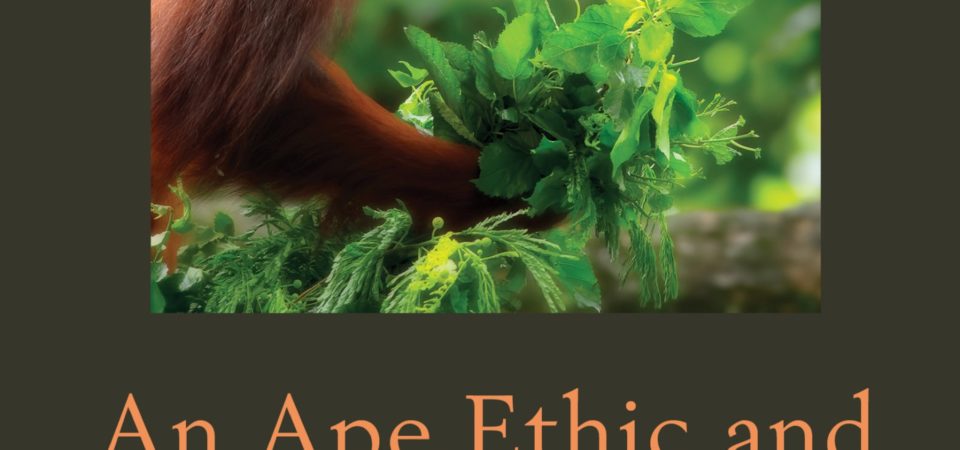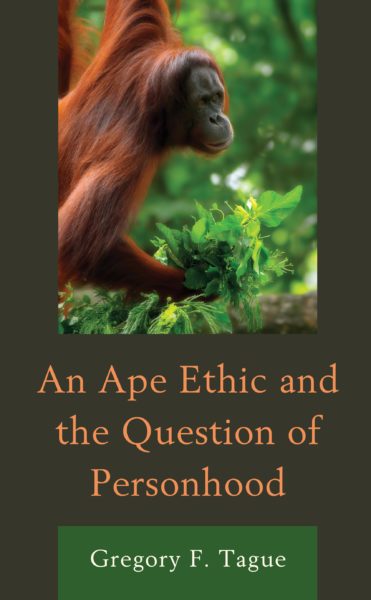Author(s): Gregory F. Tague, Ph.D.
An Ape Ethic makes the case that great apes are moral individuals because they engage in a land ethic as ecosystem engineers to generate ecologically sustainable biomes for themselves and other species. We need to recognize apes as eco-engineers in order to save them, their habitats, and in so doing, we will ultimately save earth’s biosphere. The book draws on extensive empirical research from the ecology and behavior of great apes and synthesizes past and current understanding of the similarities in cognition, social behavior, and culture found in apes. Importantly, this book proposes that differences between humans and apes provide the foundation for the call to recognize forest personhood in the great apes. While all ape species are alike in terms of cognition, intelligence, and behaviors, there is a vital contrast: great apes are the efficient ecological engineers, not humans. Simian forest sovereignty is, therefore, critical to conservation efforts in controlling global warming, and so apes should be granted dominion over their tropical forests. Weaving together philosophical, biological, socioecological, and elements from eco-psychology, this book provides a glimmer of hope for future acknowledgment of the inherent ethic ape species embody in their eco-centered existence on this planet.
The book underwent extensive review and is dedicated to Gary L. Shapiro, founder and president of the Orang Utan Republic Foundation for his over 40 years of work on behalf of rainforest conservation – the human and non-human persons of Sumatra and Borneo.
This volume is published in the philosophy list of Rowman and Littlefield’s imprint, Lexington Books. Subject areas: Environmental Ethics | Animal Studies.
Additional information, including a link to the publisher’s page for ordering, as well as complete chapter subheadings, testimonials, and a few pages from the Introduction can be found at: https://sites.google.com/site/gftague/an-ape-ethic
The author was interviewed by Marc Bekoff for Psychology Today, here: https://www.psychologytoday.com/us/blog/animal-emotions/202003/ape-ethic-and-the-question-personhood
The views and opinions expressed through the MAHB Website are those of the contributing authors and do not necessarily reflect an official position of the MAHB. The MAHB aims to share a range of perspectives and welcomes the discussions that they prompt.

